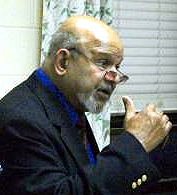As a retired registered nurse, member of the New York State Nurses Association and member of the coalition with Physicians for a National Health Plan, I am very concerned about the healthcare "reform" currently underway in Congress.
I am convinced that the route to comprehensive and affordable health care has taken a dramatically wrong turn.
The main features of the legislation have often seemed obscure; for instance, neither a "government takeover" nor a "public option" really have anything much to do with the final bills. Both bills will make being uninsured a crime, punishable by an annual fine of up to 2.5 % of adjusted income under the House bill and $95.-$750. under the Senate bill.
To make insurance affordable, tax money will be used to subsidize private insurance premiums, but even with these subsidies, families will be required to spend 8-12% of their income to purchase insurance. Meanwhile, the insurance companies stand to gain tens of millions of new customers and at least $447 billion in taxpayer subsidies.
The bills in Congress offer no meaningful cost controls, will leave 17-24 million uninsured and do nothing about the high cost of prescription drugs.
Mild promises to "bend the cost curve" fall short when even middle-income people will still end up being saddled with huge, unsustainable health care costs.
One example of a measure that promises cost-savings is a health insurance "exchange" that each ill could create (4-5 years in the future). This has been tried without success in Massachusetts, where it has added, not reduced, costs.
I agree with Congressman Massa from Rochester who states these "solutions" will not fix the problems we face. We do not need "insurance reform." We need healthcare, comprehensive and affordable for everyone and we need it now--not over the next four to ten years. Congress should reboot the process and start with a proposal for workable reform: a single-payer national health program, an expanded and improved Medicare for all.

